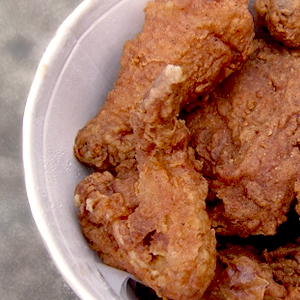
Chefs and bartenders alike spend a lot of time in the kitchen or bar working to perfect their recipes. Sometimes, a truly special, totally unique dish or drink is created, and the first thought is, "I wonder how to get a patent for this recipe?" But is it even possible to patent a recipe? And if not, how does one protect their best kitchen secrets?
Can I patent a recipe?

The simple answer is no. While it is technically possible to obtain a patent on certain recipes, the likelihood and rate of patents being granted for recipes is so low that it is almost pointless to try and obtain one unless you own a chain of restaurants or are looking to franchise your business. The effort required to protect intellectual property, such as a secret recipe or cooking process, is so great, and there are so many hurdles one must clear, that the ends hardly justify the means.
Novelty & Obviousness
When trying to patent a recipe, two major obstacles will usually prevent you from obtaining one:
Novelty
For a recipe to be novel, it must be totally unique. You may have created the best tasting barbecue sauce in the history of time, but if a previous recipe somewhere in existence outlines a similar process and ingredient combination, your application will probably be rejected.
Obviousness:
Most applications for utility patents are rejected based on this criterion. For a recipe to be "not obvious", it must yield a final product that is unexpected in some way. In other words, if I combine peanut butter and chocolate and get a chocolate peanut butter candy, that would be considered a pretty obvious result. However, if I were to combine them in such a way, maybe by adding in special ingredients or by using a newly invented baking process that produced unexpected results, I just might have a case for a patent. However, even in that case, I'd most likely be patenting the new process, not the list of ingredients themselves.
Pros & Cons of Patents
Perhaps the most deterring factor for people interested in patenting a recipe is that you need to have considerable resources available to uphold and defend your patent from infringement; typically, only large companies have the ability to do this. So, unless you're a chain amongst the size of McDonalds, you should probably consider other alternatives
Pros & Cons of Patents
| Pros | Cons |
|
|
If obtaining a successful food patent is so rare, how then does one protect their famous recipes?
The Alternative: Trade Secrets

Labeling something a trade secret is a common safety measure taken by businesses. Some examples of trade secrets include Coca-Cola® Coke® recipe as well as KFC's fried chicken batter. According to Steve O'Donnell, an intellectual property lawyer in Lancaster, PA, the definition of a trade secret is "something not generally known that gives the business some advantage over competitors." Since most recipes are simply variations on a previous incarnation of a dish, and since a recipe usually doesn't produce something totally unexpected, protecting your best recipes as trade secrets is an ideal alternative to the patenting process.
When you're the chef of a small business, protecting a trade secret is as easy as never telling anyone your recipe. However, when your operation is larger or if you're looking to franchise or market a food product, the steps you must take to protect your trade secret become more complex, and therefore more expensive.
"Many employees are required to sign some confidentiality agreement when they're hired, stating that they know they can't divulge any secrets they learn during their employment," says O'Donnell. "If that employee then quits and tries to use that secret information, they could be hit with an injunction and possibly monetary damages."
Pros & Cons of Trade Secrets
| Pros | Cons |
|
|
Protecting Trade Secrets
In order to make sure your recipes stay safe, you'll have to develop a way to hold your employees accountable and inform them of what constitutes a trade secret. Try implementing these strategies for better trade secret protection:
- Identify what trade secrets you want to protect and develop a policy or program to safeguard them
- Consult an attorney to develop a suitable defense program
- Inform and educate all employees on the value of trade secrets and make them aware of your safety program
- Only teach your trade secret to employees who need to know or use it
- Limit access to buildings, databases, or documents that contain trade secrets
- Sign confidentiality agreements and non-disclosure forms with all relevant employees
If you ever find yourself the victim of industrial espionage, you can take comfort in knowing that there is some federal protection in such a case. Under the Economic Espionage Act, the theft of trade secrets is criminalized and punishable by imprisonment and / or fines as long as reasonable measures were taken to protect the secret in the first place.





